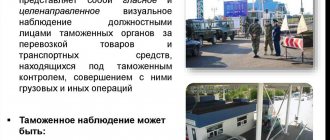The cargo will arrive several days faster than with standard transportation. For express delivery, we use separate vehicles, and at terminals we issue urgent shipments first.
Your cargo is a priority
- Scheduled movement - exact date and time of delivery to the terminal
- No-queuing service - we will quickly prepare documents, accept them and issue them at warehouses
- Express delivery in 1 day - to popular destinations from Moscow, St. Petersburg and other cities
Delivery methods
| From door to door We come to you to collect the cargo, transport it between terminals, and deliver it to the recipient | From door to terminal We pick up the cargo from your address, the recipient arrives at the pick-up point |
| From terminal to door You hand over the cargo to the collection point, we deliver it to the recipient | From terminal to terminal You bring the cargo to the collection point, the recipient also picks it up himself |
Rules for customs clearance of express cargo arriving from abroad
In 2021, citizens could order duty-free goods from foreign online stores worth up to 500 euros and weighing up to 31 kg. These limits were in effect for a month.
From January 1, 2021, the duty-free limit is 200 euros or 31 kg per parcel. Not only the amount of duty-free import has also changed, but also the amount of duty. If in 2021 a citizen who purchased more than the required amount of goods from a foreign online store paid at the rate of 30% of the excess amount, then in 2021 he will need to pay 15%.
Express transportation between Moscow and St. Petersburg
We provide express transportation to these destinations every day. The cargo is ready for delivery the next morning.
Moscow, Saint Petersburg
| Reception Until 16:00 Moscow Academic Moscow Maryino Moscow Lefortovo Until 18:00 Other terminals | Issue From 10:00 St. Petersburg East |
Saint Petersburg - Moscow
| Reception Until 18:00 St. Petersburg Vostok St. Petersburg Parnas St. Petersburg Shushary Armada Until 16:00 Other terminals | Issue From 09:00 Moscow North From 10:00 Moscow South |
Why choose our company?
TANAIS is a leading Russian logistics operator that has been successfully operating for over 10 years. We offer clients the following benefits:
- Many of our employees are former customs officials.
- No delays with customs clearance of express cargo.
- The TANAIS company is included in the official register of customs representatives, and is also an express carrier included in the experiment on customs clearance of international shipments to individuals.
We guarantee price transparency and strict adherence to deadlines within the framework of the agreement for the provision of brokerage services.
- The most important document of the week from September 24 to 30, 2013
- Archive 1999-2013
Order of the Federal Customs Service of Russia dated July 2, 2013 N 1225 “On approval of the procedure for performing customs operations in relation to express cargo moved across the customs border of the Customs Union”
(10 kb)
- Content :
- Express cargo categories
- Arrival of express cargo at the customs territory
- Departure of express cargo outside the customs territory
- Placement of express cargo under the customs procedure of customs transit and completion of this procedure
- Placing express cargo under customs procedures other than customs transit procedures
- Other provisions of the Procedure for performing customs operations in relation to express cargo moved across the customs border
Order N 1225 approved the Procedure for performing customs operations in relation to express cargo transported across the customs border of the Customs Union.
This procedure is intended to generalize and ensure uniform application of the current customs legislation when performing customs operations in relation to express cargo moved across the customs border of the Customs Union (hereinafter referred to as the customs border).
In terms of content, the document in question stands out in that it provides for specific actions of customs officials (hereinafter referred to as the official) when moving express cargo across the customs border, taking into account the carrier’s use of a particular customs procedure and mode of transport (in particular, air and road). In addition, the Procedure also establishes lists of documents that the carrier of express cargo must present when moving it across the customs border, as well as substantive requirements for these documents and the conditions for their acceptance by the official. This information in this analytical review will be presented primarily in the form of diagrams.
All this allows us to assert that the application of the Procedure will reduce the likelihood of disputes arising when moving express cargo across the customs border and will speed up their customs clearance. The procedure comes into force on October 12, 2013.
Express cargo categories
(..)
The Customs Code of the Customs Union (hereinafter referred to as the CU TC) contains a legal definition of express cargo (clause 41, clause 1, article 4 of the CU TC). Express cargo is a product that is transported as part of high-speed transportation by any means of transport using an electronic information system for organizing and tracking transportation in order to deliver this product to the recipient in accordance with an individual invoice within the minimum possible and (or) fixed period of time, with the exception of goods sent by international mail (clause 41, clause 1, article 4 of the Labor Code of the Customs Union).
From the point of view of passing the customs border, express cargo has the following features arising from their legal nature:
— customs operations preceding the filing of a customs declaration are carried out as a matter of priority (clause 4 of article 150 of the Customs Code of the Customs Union);
— express cargo is placed under the customs procedure as a matter of priority (Article 178 of the Customs Code of the Customs Union). In the Procedure, the term “express cargo” is disclosed by listing specific objects classified as one of four categories of such cargo, which can be presented in the form of the following diagram.
Scheme 1. Categories of express cargo:
Arrival of express cargo at the customs territory
(..)
The procedure stipulates that, regardless of the type of transport used for transportation, when notifying the customs authority of the arrival of express cargo into the customs territory, documents and information are submitted confirming compliance with prohibitions and restrictions, with the exception of non-tariff regulation measures (clause 11).
Customs officials do not have the right to demand from the carrier upon arrival of express cargo the provision of information not provided for in paragraph 1 of Art. 159 Labor Code of the Customs Union (clause 12 of the Procedure). This provision undoubtedly represents a legal guarantee of the rights and legitimate interests of the express cargo carrier.
The Procedure defines which documents can be transport (transportation) and commercial when transported by road. This clarification is significant, since from paragraph 1 of Art. 159 of the Customs Code of the Russian Federation, it is impossible to establish with certainty the content of the given terms.
Scheme 2. Information provided upon arrival of express cargo by road
In addition, the Procedure explains in detail which documents must contain the information that must be provided upon the arrival of express cargo by air.
Scheme 3. Information provided upon arrival of express cargo by air:
It should also be noted that the carrier, including express cargo, can verify the accuracy of information about the cargo.
In relation to this, judicial practice notes that for transportation by all modes of transport, there is a unified approach to establishing the procedure for the carrier’s actions when accepting cargo for transportation: if the carrier actually cannot exercise his right to verify the accuracy of information about the cargo, he must enter appropriate justified information into the shipping documents reservations (see, for example, Resolutions of the Supreme Court of the Russian Federation dated September 14, 2012 No. 33-AD12-28, Fifth Arbitration Court of Appeal dated May 16, 2013 No. 05AP-4216/2013 in case No. A51-878/2013, Thirteenth Arbitration Court of Appeal dated 09/05/2013 in case No. A56-10015/2013).
Departure of express cargo outside the customs territory
(..)
The Procedure touches upon the following feature of the export of express cargo.
If, after arriving at the customs territory, the express cargo did not leave the territory of the checkpoint across the state border of the Russian Federation and at the same time it is subject to export outside the customs territory without being placed under customs procedures and without submitting to the customs authority a customs declaration or other document allowing the export of goods from the customs territory , then the official allows the departure of express cargo on the basis of documents presented upon arrival of this cargo by road or air transport.
Placement of express cargo under the customs procedure of customs transit and completion of this procedure
(..)
The basic information of Section IV of the Procedure regarding the placement of express cargo under the customs procedure of customs transit and the completion of this procedure can be presented in the form of the following diagrams.
Scheme 4. Documents presented to the customs authority by the declarant of the procedure for customs transit of express cargo in the case of using transport and commercial documents as a transit declaration:
Scheme 5. Submission by the declarant of the customs transit procedure of one transit declaration for the transportation of express cargo by various modes of transport:
In addition, in the case of using transport (transportation) commercial documents for express cargo exported from the territory of the Russian Federation as a transit declaration, the dispatch official accepts the following documents from the customs transit declarant:
— a general invoice with a register of express cargo;
— a general invoice with a register of re-exported express cargo.
These documents must contain the information listed in paragraph 3 of Art. 182 of the Customs Code of the Customs Union (in particular, information about the sender, the recipient of goods in accordance with transport (shipment) documents, country of departure, country of destination of goods, etc.).
Placing express cargo under customs procedures other than customs transit procedures
(..)
In this part, one cannot fail to note clause 28 of the Procedure, which establishes imperative requirements for the timing of verification of documents and information submitted during the customs declaration of express cargo:
- in relation to express cargo of categories 2 - 4, the period should not exceed two hours from the moment of registration of the declaration of goods (hereinafter - DT);
— for express cargo of category 1, the period should not exceed one hour from the moment of registration of the traffic accident.
No later than the specified deadlines, the customs authority releases express cargo subject to compliance with the conditions for the release of goods and subject to completion of customs control in relation to express cargo.
Scheme 6. Documents presented by the carrier of express cargo to the customs authority when placing express cargo under a customs procedure other than customs transit:
Other provisions of the Procedure for performing customs operations in relation to express cargo moved across the customs border
(..)
Among other provisions of the Procedure, one can note clause 37, which provides that an official may suspend the release of express cargo that contains intellectual property objects that are not included in the customs register of intellectual property objects if signs of a violation of exclusive rights are identified.
Also, the release of express cargo is suspended if they contain objects of intellectual property and their movement across the customs border entails a violation of the rights of the copyright holder (clause 36 of the Procedure).
The documents that are the heroes of the current review are Order of the Federal Customs Service of Russia dated July 2, 2013 N 1225 “On approval of the procedure for performing customs operations in relation to express cargo moved across the customs border of the Customs Union”
, Can .
Registry information
Filling out information in the registry begins by adding the code of the operation for which the registry is being created. “Add operation code” button, the required code is selected from the corresponding directory and the following information is indicated:
- registration number of the goods declaration for express cargo for the relevant operation;
- the tax base for the relevant transaction, the validity of applying a 0% tax rate for which is documented;
- number of the individual invoice, the numeric or alphanumeric value of which is indicated in the declaration of goods;
- number and date of the document (invoice, invoice, bill, etc.) drawn up by the taxpayer for the recipient and containing information about the name and cost of the goods sold.
“Note” field indicates other information related to the transaction, with the exception of information previously specified in the register.
In a separate field, the total amount of the tax base for the corresponding transaction is automatically calculated. This value is generated by the transaction code and must correspond to the total amount of indicators in lines 020 of section 4 of the VAT return for the corresponding transaction.
What applies to express cargo?
Express cargo is cargo in respect of which customs operations (when moving across the border) are carried out first. Express cargo is divided into four categories.
First category. These are documents that have no commercial value; correspondence that has no commercial value.
Second category. It includes products:
— the total customs value of which within one individual consignment note does not exceed 200 euros (in equivalent);
— in respect of which customs duties and taxes are not paid, and customs duties are not collected.
Third category. Products include:
- the total customs value of which within one individual consignment note is over 200 euros, but not more than 1000 euros;
— declaration of which can be carried out by submitting an application in the form of a register of express cargo or in any form.
Fourth category. Products included here:
— the total customs value of which within one individual invoice exceeds 1000 euros;
— declaration of which is carried out in the generally established manner by submitting a declaration in the form established by the decision of the Customs Union Commission dated May 20, 2010 No. 257.
Title page
“Report” field indicates the file name of the previously submitted VAT tax return to which this register is attached.
In the “Tax period” , select a period similar to the period specified in the VAT tax return with which the register of information is submitted.
In the “Register type” , select its type: initial or corrective. When filling out the adjustment register, the adjustment number is indicated in the appropriate field (for example, “1”, “2”, etc.).
The field “Submitted to the tax authority” reflects the code and name of the tax authority to which the register is submitted. By default, the field is automatically filled in with the tax authority that was specified when the client registered in the system.
In the “Name of Organization” , indicate the name of the taxpayer - organization (separate division of a foreign organization) or individual entrepreneur. If the client is registered in the system, this data is filled in automatically.
Attention! The fields “Form of reorganization (liquidation)” and “TIN/KPP of the reorganized organization” are filled in only by those organizations that are reorganized or liquidated during the tax period.
If the register is submitted by a taxpayer, then the “Manager” is indicated in the “Signatory” ; if a representative of the taxpayer, then “Authorized Representative”. In this case, the full name of the head is indicated, in the case of submitting the register by a representative - the full name of the representative and details of the document confirming his authority.
Also, the date of its compilation is automatically indicated on the title page of the register.
Required documents
What documents does customs require? It depends on the method of delivery of goods classified as “express”.
To the airport:
- general declaration, which is valid for transportation by air carrier;
- special cargo manifest;
- a general waybill with information about all types of cargo.
A carrier using road transport for international cargo transportation – an invoice and a waybill.
Customs may also request other documents, which they check quickly but thoroughly. This may be an agreement between the seller and the buyer or certificates of conformity. Our specialists will analyze the specific situation and choose a customs clearance scheme for the delivery of express goods that is right for you.
Customs services
Being a customs representative included in the register of the Federal Customs Service of the Russian Federation, our company, under a service agreement, will assume responsibility for representing the interests of the declarant at customs when placing the cargo under the chosen procedure. We will help you arrange:
- CARNET ATA for goods temporarily transported across borders;
- re-import, re-export - as final procedures for the return of temporarily exported/imported goods;
- release of imported products for free circulation - import 40;
- export diesel fuel for the supply of Russian goods to a foreign buyer;
- transit DT for moving cargo under customs control to an internal transport point.
We will also provide cargo owners and their legal representatives with timely and qualified assistance in solving planned and urgent problems:
- terminal support for arriving or departing cargo;
- registration of loading documents;
- presentation of goods and documents to customs authorities, border, veterinary, phytosanitary, and quarantine control services;
- receipt and removal of cargo from temporary storage warehouses, placement at the terminal;
- confirmation of cargo departure from the customs territory.
Additionally, we will provide a service for the responsible storage of customs cleared goods in our warehouse in Sheremetyevo, and we will deliver the cargo to recipients in Moscow and Moscow Region using our own transport.
Customs clearance of goods in Moscow
The range of basic services for customs clearance of imported goods traveling by plane via Moscow includes:
- assistance in registering a foreign trade participant at customs (during the first registration);
- consultations on customs legislation;
- checking the package of documents (completeness, completeness of information, correctness, correctness of execution), assistance in bringing them into compliance with the rules and requirements of customs;
- classification of goods in accordance with the Commodity Tax Code of the EAEU, including obtaining preliminary class decisions and the official conclusion of the Federal Customs Service;
- assistance in complying with prohibitions and restrictions, obtaining permits for imported and exported products;
- checking cost and other customs risks;
- calculation of customs value, amounts to be deposited into FCS accounts for quick release (taking into account confirmed benefits and risks);
- formation and submission, as well as a package of formalized and attached documents, prompt interaction with post employees, response to requests;
- facilitating the accelerated release of goods under the selected procedure in 6-24 hours;
- assistance to the declarant in matters of proof of customs value and return of security.
Registers of express cargo - basic concepts
Express cargo
- this is a product that is transported as part of high-speed transportation by any mode of transport using an electronic information system for organizing transportation tracking in order to deliver the specified product to the recipient in accordance with an individual invoice within the shortest possible period of time or within a fixed period of time (with the exception of goods sent to MPO).
MPO
– this is the delivery of goods by postal organizations of various countries, in which the recipient must ultimately come to pick up the parcel at a Russian Post office. If we look at it in more detail, IPOs are postal items that were accepted for shipment outside the customs territory of the Customs Union, entering the customs territory of the Customs Union or transiting through this territory and accompanied by documents, the list of which is established by acts of the Universal Postal Union.
Unlike MPO, express cargo will be delivered to the final recipient by courier service
(most often by several services in different countries), bypassing postal organizations. In most cases, the goods are delivered to the customer “to the door”.
The goods are subject to customs declaration, and not just customs control. During the customs declaration, the customs authority receives the necessary information about the goods in writing (for customs purposes). If the goods are intended for personal use (not for resale), the declaration can be made by the recipient of the shipment or a customs representative
– on behalf of and on behalf of the recipient (a corresponding agreement is concluded). Goods for personal use that are delivered to an individual by a carrier must be declared in writing using a passenger customs declaration.
A customs representative is a Russian organization that carries out customs operations on behalf and on behalf of the declarant. This is a legal entity with a special status and providing services in the field of customs affairs. Usually the express carrier has the status of a customs representative
.
Goods delivered as express cargo may be placed under one of the customs procedures, including the procedure for release for domestic consumption (then declaration is carried out in the manner prescribed for participants in foreign economic activity).
The register of express cargo must contain the mandatory details of the express carrier:
- actual and legal addresses;
- number of the certificate of inclusion in the Register of customs representatives;
- OKPO codes, INN;
- other information necessary for customs purposes.
The register is signed by an authorized person of the express carrier. Each sheet of the Register must be certified by the stamp of the express carrier.








